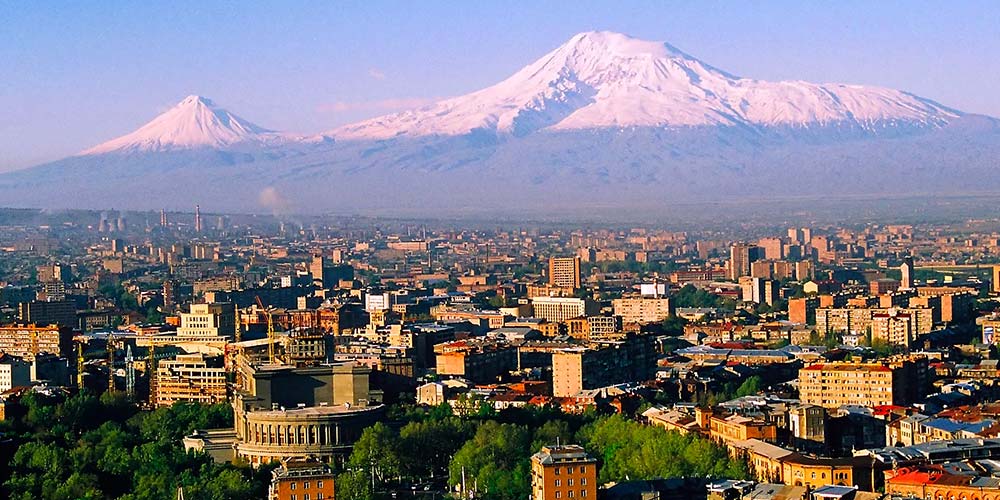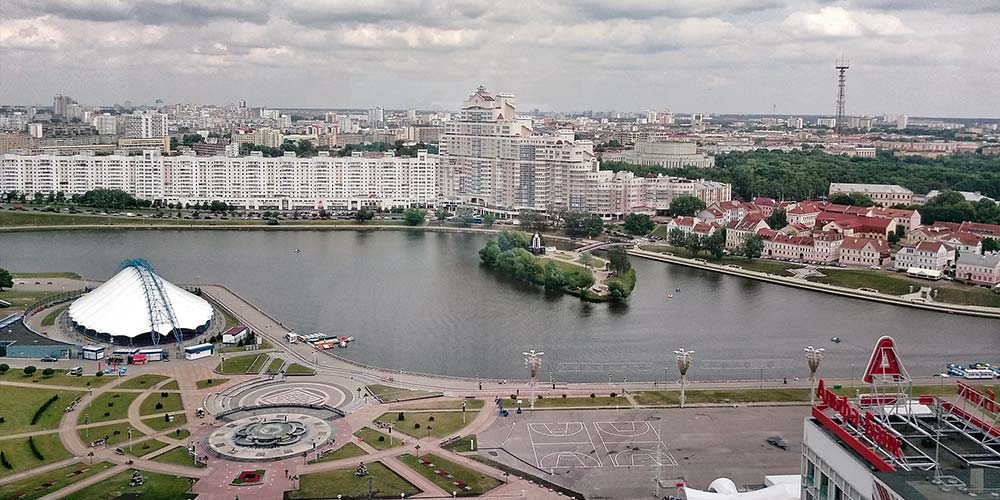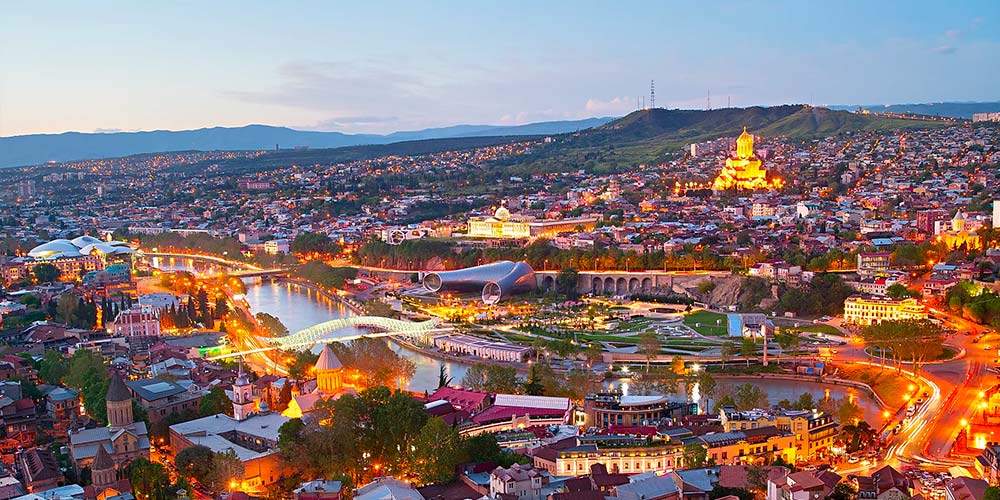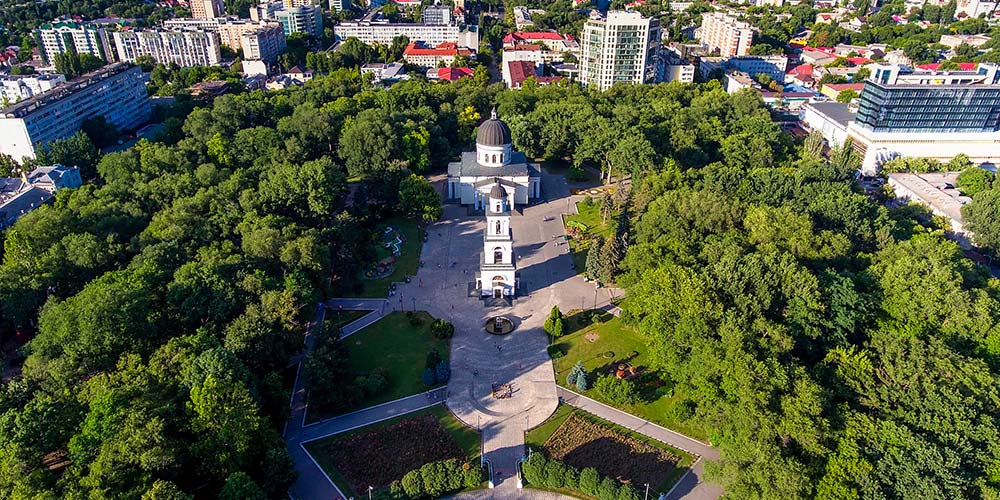EaPEC 2017
27-28 September 2017: Minsk, Belarus
Hosted by UIIP NASB and BASNET
The 2nd Eastern Partnership E-Infrastructures Conference featured lightning talks and interactive workshops for the first time, focusing on artifical intelligence, digitisation of cultural heritage, and research data management. Keynotes on the Human Brain Project and exploring ‘Internet Freedom’ were highlights of the event.


All videos can be found on our YouTube Playlist
View playlistRegistration, Coffee & Mingling
Session chairs
Yuri ShoukourianSeverin Strohal
The Deputy Head of Unit “Georgia, Moldova & Neighbourhood Cross-Border Cooperation”, European Commission
Session chairs
Maria MinaricovaEU Policies for Science and Research
EU Policies for Science and Research
Session chairs
Alexander TuzikovCoffee Break
Objective of the panel is to develop a strategy for taking collaborations between Belarusian and European partners to a new level, especially in view of the newly adopted state agenda for IT Belarus .
The discussion is set on a very ambitious goal: to outline the path to innovation and partnership in the Belarusian strategical sectors: Science, Education and Technology.
The discussion will touch upon current challenges, highlight success stories, explore the adoptable best practices of scaling up and commercialising innovative approaches and take a look at the most sensitive areas in collaborations between European and Belarusian partners.
Panelists:
Alexander Tuzikov (Director General, UIIP NASB / BASNET, Belarus)
Artur Binczewski ((Head of Network Division, PSNC, Poland)
Helena Zhivitskaya (Vice-Rector of the Belarusian State University of Informatics and Radioelectronics, Belarus)
Uladimir Anishchanka (Vice-DG, Softclub, S&T INFOPARK Association, Belarus)
Kristina Lillemets (Director EENet, Estonia)
Lunch
“Brain inspired computing – Where we are and where we will go”
The Human Brain Project (HBP) is a flagship project co-sponsorered by the European Commission with the the goal to connect modern ICT with a key scientific challenge of the 21st century : Understanding the Human Brain.
At the core of the project is the construction and operation of 6 platforms forming a unified European Infrastructure for Brain Research. The Infrastructure uses and develops ICT based methods for the handling and analysis of neuroscience and medical data, for brain simulation and for novel brain based technologies in neuromorphic computing and neurorobotics.
The lecture will deliver an overview of the HBP and then focus on the concepts, achievements and future plans of brain inspired or neuromorphic computing. This novel technology offers a fundamentally new approach to understanding multiple temporal scales in brain information processing and and promises advances in artificial intelligence by using a more biology motivated approach.
Session chairs
Maria MinaricovaSpeakers
Short Break
“GÉANT 5 years from now:
How to open networks for Open Science”
This presentation will provide an overview about the GÉANT network, its Global Research collaborations and the services, how to open networks for Open Science.
PRACE – Accelerator for Research & Innovation
The mission of PRACE (Partnership for Advanced Computing in Europe) is to enable high impact scientific discovery and engineering research and development across all disciplines to enhance European competitiveness for the benefit of society. PRACE seeks to realise this mission by offering world class computing and data management resources and services through a peer review process.
PRACE also seeks to strengthen the European users of HPC in industry through various initiatives. PRACE has a strong interest in improving energy efficiency of computing systems and reducing their environmental impact.
In this talk the organisation of PRACE and the PRACE services will be presented. Some examples will illustrate the impact of PRACE.
“eInfraCentral: Joining up service catalogues – towards a European e-infrastructure market place”
The development of eInfrastructure services has matured over the years to provide a portfolio of services targeted at the Research & Education sector, however access to information about these services across Europe is disparate and varies dramatically. The eInfraCentral project aims to provide a simple to use one-stop-shop for services across the community to make it easier to find, select and use eInfrastructure Services – particularly in the long-tail of research where access is less well managed.
eInfraCentral will be a key component of a wider push towards a European Open Science cloud (EOSC) which aims to strengthen Europe’s position in data-driven innovation, to improve competitiveness and cohesion and to help create a Digital Single Market. EOSC will create a federated, globally accessible, multidisciplinary environment where researchers, innovators, companies and citizens can publish, find, use and reuse each other’s data, tools, publications and other outputs for research, innovation and educational purposes. This talk will demonstrate how joining up e-infrastructure service catalogues will lead to a “market place” of services benefitting a wide range of users from across Europe.
Session chairs
Ramaz KvatadzeCoffee Break
ESiWACE: Centre of Excellence in Simulation of Weather and Climate in Europe
In this talk we will present the main goals, structure and first results of the ESiWACE Centre of Excellence. ESiWACE wants to substantially improve efficiency and productivity of numerical weather and climate simulation on high-performance computing platforms by supporting the end-to-end workflow of global Earth system modelling in HPC environment. Moreover, ESiWACE will address a wide range of challenges, from the development of specific software products to the deployment of user facing services for both, computing and storage. Besides, with regard to the upcoming exascale era, ESiWACE will establish demonstrator simulations, which will be run at highest affordable resolutions (target 1km). This will yield insights into the computability of configurations that will be sufficient to address key scientific challenges in weather and climate prediction.
INDIGO-DataCloud, an open solution for the exploitation of distributed Cloud resources.
Current e-infrastructures face multiple challenges. Users increasingly need to exploit and integrate multiple, distributed resources, be they related to compute or data; they want to do this regardless of the actual resource providers, which can be public, private or both; users also typically want to avoid proprietary solutions, which can lead to lock-ins and/or to privacy concerns. And, while in the past the focus of e-infrastructures was on providing simple physical or virtual resources, the Cloud paradigm requires a shift away from the infrastructural layer (which can and should be interchangeable) to the application domain, through open, programmable and scalable Platform-as-a-Service and Software-as-a-Service stacks.
This talk will discuss the solutions to these problems offered by INDIGO-DataCloud, an H2020 project with a Consortium of 26 European academic and industrial partners. INDIGO developed an open source platform tailored to science, but applicable to other domains as well.
Examples of concrete usage of INDIGO solutions in applications belonging to multiple scientific communities will be presented, together with cases of adoption of INDIGO components by commercial companies. The talk will end with the description of three recently approved H2020 projects that substantially derive, adopt or extend components, know-how and results coming from INDIGO-DataCloud, and that will concretely contribute to building a European Open Science Cloud.
The QUANTICOL project : Understanding Collective Adaptive Systems
Smart urban transport systems and smart grids are two examples of collective adaptive systems. They consist of a large number of heterogeneous entities with decentralized control and varying degrees of complex autonomous behaviour. The QUANTICOL project has sought to support designers and operators of collective adaptive systems (CAS) through the construction and analysis of models. In this talk, I will present the theoretical and practical tools that we developed during the project and I will present some of the applications of our work to develop a smarter and more robust electrical distribution network.
Session chairs
Hrachya AstsatryanEnd of Day 1
Coffee & Mingling
Freedom is not something that is comes naturally. It is something one has to fight for, sometimes literally. Online this is no different. The almost unlimited freedom that the Internet seems to offer is under constant threat. We do have to fight to keep the Internet open, accessible and trustworthy. This is a prerequisite for researchers, students, scholars and teachers all over the world and NRENs have a responsibility in this.
The current Internet supports what Vint Cerf calls: permissionless Innovation. This innovation is organized in a multitude of ways depending on whether we look at infrastructure, services, devices or apps. The combination of opportunities in each of these allows for almost unlimited innovation freedom.
One of the good things that the Internet brings is to put the consumer in the driving seat. Whether it is the music industry or the scientific publishing industry, their old business models are under severe threat due to the Internet freedom of consumers to organise themselves and to explore alternative ways of doing business.
Still it is not just positive news on the Internet, with respect to freedom. That very freedom is under multiple threats. Commercial companies threaten it by invading our privacy. Criminals threaten it by stealing identities. Governments threaten it by limiting our access or by using it for spying on us. These threats affect how we (can) use the Internet.
Another threat is our own dependency on the Internet. If it is not working we are almost helpless as a society to keep on functioning. This may become worse as cybercriminals and security experts fight a never-ending arms race to either disrupt or save the Internet.
All these issues need to be taken seriously in order to preserve the freedom on the Internet. This requires that we re-invent Internet Governance on a global scale. The discussions on the new Internet governance have been accelerated by the Snowden revelations and the decision of the US Government to hand over the IANA contract.
It is important for NRENs to be aware of the Internet governance discussions and to be aware of the on-going process in this matter. NRENs should participate more in the relevant Internet Governance fora (such as IETF, IGF, ICANN) to assure that the interest of NRENs are well represented. This requires involvement in debates on safety, surveillance, privacy etc. Not issues that are top-of-mind for most NRENs. However a wrong outcome of those discussions could severely impact the effectiveness of NRENs globally.
This presentation is both an update on Internet Governance as well as a call to arms for NRENs, making a case for NRENs to be more aware and involved in Internet Governance.
Session chairs
Erik Huizer, CEO GÉANTSocial Entrepreneurship Incubator for Social Good
Social Entrepreneurship Incubator is a multicomponent programme aiming at empowering aspiring social entrepreneurs in Belarus by proving expertise and tailor-made training designed by Belarusian and international practitioners.
360°virtual reality live streaming based real motivative learning environment
Most educational institutions use the benefits of e-learning. Video is mostly used as recorded video and the production costs are quite high as a camera team is needed. The process of doing a order for a camera team and get the costs confirmed often prevents lecturers form using the quite motivative media video.
Minddrone
The Minddrone demo is not only a technical demo (Wi-Fi, Bleutooth, drone-tech, software, algorithms, BCI and low latency networks) it is foremost a demo to discuss the social impact of technology in general and think about what is possible, what we actually want and how that may work out for all of us!
Computer visualization of architectural monument of Belarus on the basis of 3D-modeling
In the current environment of the information society the multimedia techniques broadcasting culture knowledge become relevant. In the global information space it is presented a large variety of technologies and means of culture and art samples visual display.
Switches – routers in disguise: Software router acceleration using OpenFlow hardware
Our proposed open-source and innovative solution suggests using a Linux server/router based on commodity x86 hardware, together with OpenFlow switches and Sflow statistics to offoad most of the workload from the software router to OpenFlow capable hardware. This creates a platform where hardware can be upgraded independently of the software.
Poster Presentation: Custom Audio Guide for online and offline distriburion
Custom Audio Guide is a navigation multilingual system for online or offline data distribution that can be adopted by users for any type of audio guide application: for exhibitions, museums, cities, countries, sport complexes, gardens, etc.
Session chairs
Vugar MusayevCoffee Break
- Cultural Heritage
- Research Data Management
- Artificial Intelligence as Open Science: from Research to Business
- How to contribute to H2020
Session chairs
Irina MikhailavaLunch
To help further promote the benefits of international-scale networking to researchers, EaP now collaborates with leading partners to create an exciting opportunity for the research communities.
The EYR@EaP organising committee consists of a number of partners from the European NREN community.
This brand new edition of the Enlighten Your Research programme invites researchers and their collaborators to submit proposals that highlight how access to advanced networks, technologies and compute would significantly improve their research and discovery process.
In the EYR Award Ceremony, the grants of this year’s EYR @ EAP Programme will be awarded to their beneficiaries. Afterwards, the beneficiaries will present their proposals in short 5min presentations to the audience.
Speakers
Digitising Cultural Heritage
Digitization is an ongoing effort in cultural heritage, science and business. Books, articles, technical documentation, newspapers, reports, postcards, photos, testimonies, manuscripts and other assets are more and more accessible in the digital environment. Digitization itself covers various activities from selection of physical objects to successful preservation of their digital representation. It can include activities such as scanning, data analysis, quality assurance, storage or online accessibility. Each activity in digitization workflow has its own challenges and problems which can be general (applicable for many cases, e.g. quality assurance) or specific (applicable in certain setup, e.g. OCR of specific type of document).
In the course of the Digitizing Cultural Heritage workshop participants will learn about the tools and resources that are used to improve digitisation practices in Polish cultural heritage institutions. Participants unfamiliar with digitization will have an opportunity to learn digitization process basics and understand current challenges. Experts will have an opportunity to discuss digitization approach in Poland and investigate new options to improve their work.
Research Data Management
Research Data Management (RDM) is a critical enabling technology for many aspects of Open Science, including Open Peer Review, Open Access, Open Data and Open Source. In practice, the impact of RDM on science is profound: RDM is currently being established as a prerequisite by funding agencies to apply for research grants. Is is a requirement of a growing number of journal publishers to make data available, which underly publications. RDM allows researchers to increase their visibility by enabling additional data citation.
In the age of big data, RDM poses challenges on multiple levels, ranging from guidance for individual researchers, new infrastructures for research institutions to technology strategies for data centers. This workshop reaches out to policy makers, researchers, students, and experts for research and education to discuss the facets of RDM, to share their experiences and to develop solutions for existing challenges.
Artificial Intelligence as Open Science: from Research to Business
Coffee Break
Report from the workshops
Closing & Good Bye
End of Day 2
Speakers
Natalia Ovsyanko
Head of Innovation Platform, Academy of Public Administration, National Tourism Agency (Minsk, Belarus)
Iulian Secrieru, Researcher, Vladimir Andrunachievici Institute of Mathematics and Computer Science, Moldova
Vitali Liauchuk
United Institute of Informatics Problems (UIIP), National Academy of Sciences, Belarus
Impressions of the conference

test

Test test

Copyright tekst

Copyright tekst

Copyright tekst
Enlighten your Research
The 2017 Enlighten Your Research programme in the Eastern Partnership region invited researchers from any discipline and their collaborators to submit proposals that highlighted how access to Internet and compute technologies could significantly improve their research process. Six winners were selected and presented with awards at EaPEC 2017.
